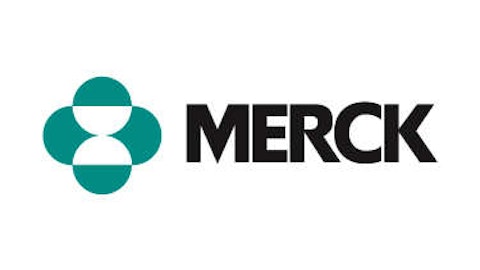
At the end of October of last year I wrote an article claiming that Best Buy was far more profitable than a cursory examination of the numbers suggested. I calculated the owner earnings, which I believe is a much better measure for valuation purposes than net income or free cash flow, and showed that the story was not nearly as dismal as many people thought. When the stock fell below $12 per share I bought more, doubling my own stake in the company.
When Best Buy Co., Inc. (NYSE:BBY) released its full year earnings report on Mar. 1 the numbers showed that the turnaround effort, led by CEO Hubert Joly, was making real progress. Comparable store sales in the United States actually increased by 0.9% over the previous year, dragged down by lackluster international results. Online sales grew by 11.2%, a step in the right direction for a company which let itself get woefully behind in online retail. Adjusted free cash flow came in at $965 million, higher than the $500 previously guided for. This difference was mainly due to an aggressive effort at reducing inventory and optimizing working capital. EPS was $-1.21 per share, reflecting various non-cash write-offs and charges.
Data from 8-K
Owner earnings
Neither EPS nor free cash flow give an accurate picture of Best Buy’s performance. For that I’ll turn to owner earnings. Best Buy Co., Inc. (NYSE:BBY) recorded $457 million in restructuring charges in the fiscal year as well as $822 million in goodwill impairment. These two charges are the reason that the net income is negative, but clearly these are one-time items and are thus not a result of normal operations. Other non-cash charges which I’ll add back to the net income total $185 million, along with depreciation and amortization charges of $876 million and $41 million respectively. All of this comes out to $2.15 billion.
From this value I’ll subtract capital expenditures of $742 million, yielding owner earnings of about $1.4 billion. On a per-share basis this comes out to $4.14 per share.
The balance sheet also got a lot stronger in the fourth quarter. Some people got worried about Best Buy’s cash position of just $309 million at the end of Q3, but that number has grown to $1.8 billion. With a total debt of about $2.3 billion liquidity isn’t an issue.
Is Best Buy still a value?
At $12 per share Best Buy Co., Inc. (NYSE:BBY) was insanely underpriced. And I’m not just someone saying that in hindsight – I put my money where my mouth is and bought shares. Now, at $20 per share, the stock is still underpriced. It trades at around 5 times owner earnings with very little net debt, and on top of that pays a dividend yield of 3.4%. It’s hard to say exactly how much the stock is worth, but it’s certainly more than $20 per share.
A different turnaround
People are quick to compare Best Buy Co., Inc. (NYSE:BBY) to other retailers which are attempting a turnaround, namely RadioShack Corporation (NYSE:RSH) and J.C. Penney Company, Inc. (NYSE:JCP). All three companies are deemed irrelevant by detractors, usually citing online competition. But Best Buy stands out from this group.
I’d be willing to bet that if you went out and asked 100 people what RadioShack sold many of them would respond with “cables” or have no idea at all. If you ask a younger person they may not even know what RadioShack is. RadioShack mainly sells mobile devices and plans in exactly the same way that Best Buy does. RadioShack is also unprofitable and had less revenue in 2012 than it did in 2003.
J.C. Penney, while not in the same industry, is a nationwide retail store just like Best Buy. The difference, though, is that there are plenty of nationwide clothing stores which sell the same products that J.C. Penney sells. There is absolutely nothing special about the company. Best Buy, however, is the only nationwide consumer electronics store. Sure, there’s Wal-Mart Stores, Inc. (NYSE:WMT) and Target Corporation (NYSE:TGT), but if you want any chance of decent customer service Best Buy is your best option.
The bottom line
Even after the run-up in stock price Best Buy Co., Inc. (NYSE:BBY) is still undervalued. Unlike the turnaround efforts of RadioShack and J.C. Penney, Best Buy has remained profitable, and with management focusing on cutting costs the company should be set up for long term success.
The article The Turnaround Story Continues originally appeared on Fool.com and is written by Timothy Green.
Copyright © 1995 – 2013 The Motley Fool, LLC. All rights reserved. The Motley Fool has a disclosure policy.




